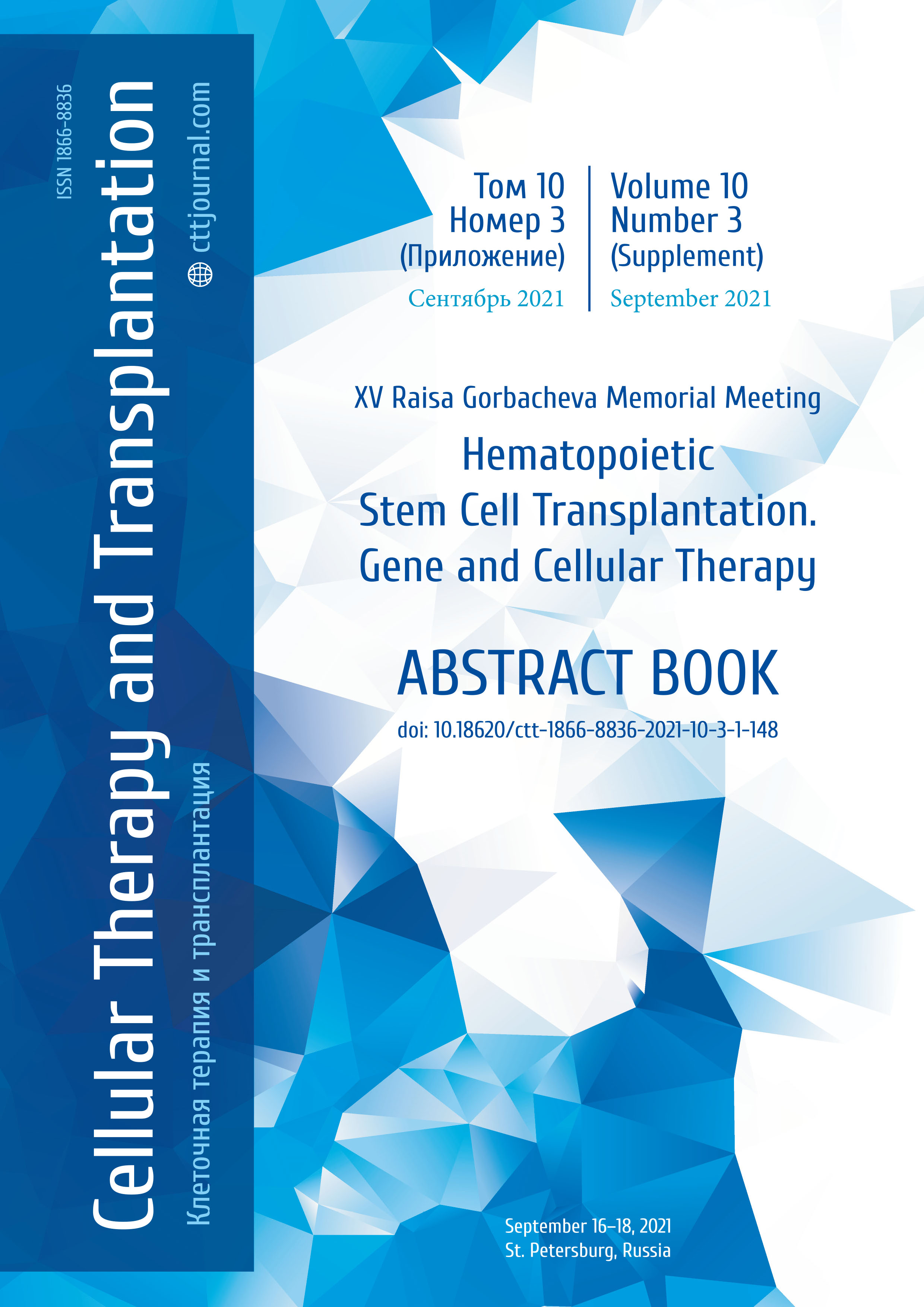CM-04. Possibilities of cytogenetic analysis of blood cells in the diagnosis of myelofibrosis
Irina A. Petrova, Maria V. Latypova, Tatiana Y. Gracheva, Anastasia A. Khabibullina, Diana S. Ilyasova, Maria E. Vlasova, Tatiana L. Gindina
RM Gorbacheva Research Institute, Pavlov University, St. Petersburg, Russia
Correspondence:
Irina A. Petrova, phone: +7 (812) 338 6292, e-mail: cytogenetics.bmt.lab@gmail.com
Summary
Myelofibrosis (MF) is a Ph-negative myeloproliferative disease characterized by tumor proliferation of hematopoietic stem cells and bone marrow fibrosis. Megakaryocytes that stimulate the activity of fibroblasts play an important role in the development of fibrosis. In 2013, N. R. Singh and co-authors [Mol. Cytogenetics, 2013] proposed a method for 48-hour cultivation of blood cells without stimulation by mitogens. One of the mpst important findings was polyploid karyotypes, which suggested the presence of megakaryocytic progenitor cells in the blood and indicated the progression of the disease. Our aim was to evaluate the frequency and nature of chromosomal aberrations in patients with MF and compare the results of cytogenetic studies of bone marrow and blood cells without mitogen stimulation (after 24-hour and 48-hour cultivation, respectively).
Materials and methods
The study included 106 patients with MF who underwent examination and treatment in the clinic of the Raisa Gorbacheva Memorial Research Institute of Children Oncology, Hematology and Transplantation from 2009 to 2021 (63 women and 43 men aged 26 to 83 with a median of 52). The standard cytogenetic technique of 24-hour culturing of bone marrow cells was performed in 39 patients, 48-hour culturing of peripheral blood cells without growth stimulants – in 41 patients, and a combination of methods – in 26 patients. The obtained preparations were stained by the GTG-banding method. Chromosomal aberrations were described according to ISCN 2016 criteria.
Results
One hundred and six patients were examined. In 41 (38.7%) patients, numerical and structural rearrangements were detected: complete or partial monosomies of chromosomes 7, 11, 13, 20 in 9 (22%) patients, complete or partial trisomies of chromosomes 1, 8, 9, 21 in 15 (36.5%) patients, single structural anomalies and complex rearrangements in 5 (12.2%) and 12 (29.3%) patients, respectively. During karyotyping of blood cells, metaphases with tetra – and octoploid sets of chromosomes without structural rearrangements were detected in 23 of 67 (34%) cases and 11 of 67 (16%) cases, chromosomal aberrations were found in both diploid and tetraploid karyotypes. According to the DIPSS plus rating system, patients with very high, high, intermediate and low cytogenetic risk were 5.7%, 43.4%, 6.6% and 44.3%, respectively. Molecular genetic analysis of patients revealed gene mutations: JAK2 in 56.4% of patients, CALR-23.1% and MPL – in 1.3% of patients. When comparing the effectiveness of the two cultivation methods, the possibility of detecting an abnormal karyotype was significantly higher with the cultivation of blood cells (76%) compared with the standard cultivation of bone marrow cells (37%) (p=0.00001).
Conclusion
The study showed that the method of culturing blood cells in patients with myelofibrosis is more accessible and informative since it allows identifying polyploid megakaryocyte precursors and thereby determining the advanced stage of the disease.
Keywords
Myelofibrosis, 48-hour blood cell culture, cytogenetics, polyploid karyotype.


